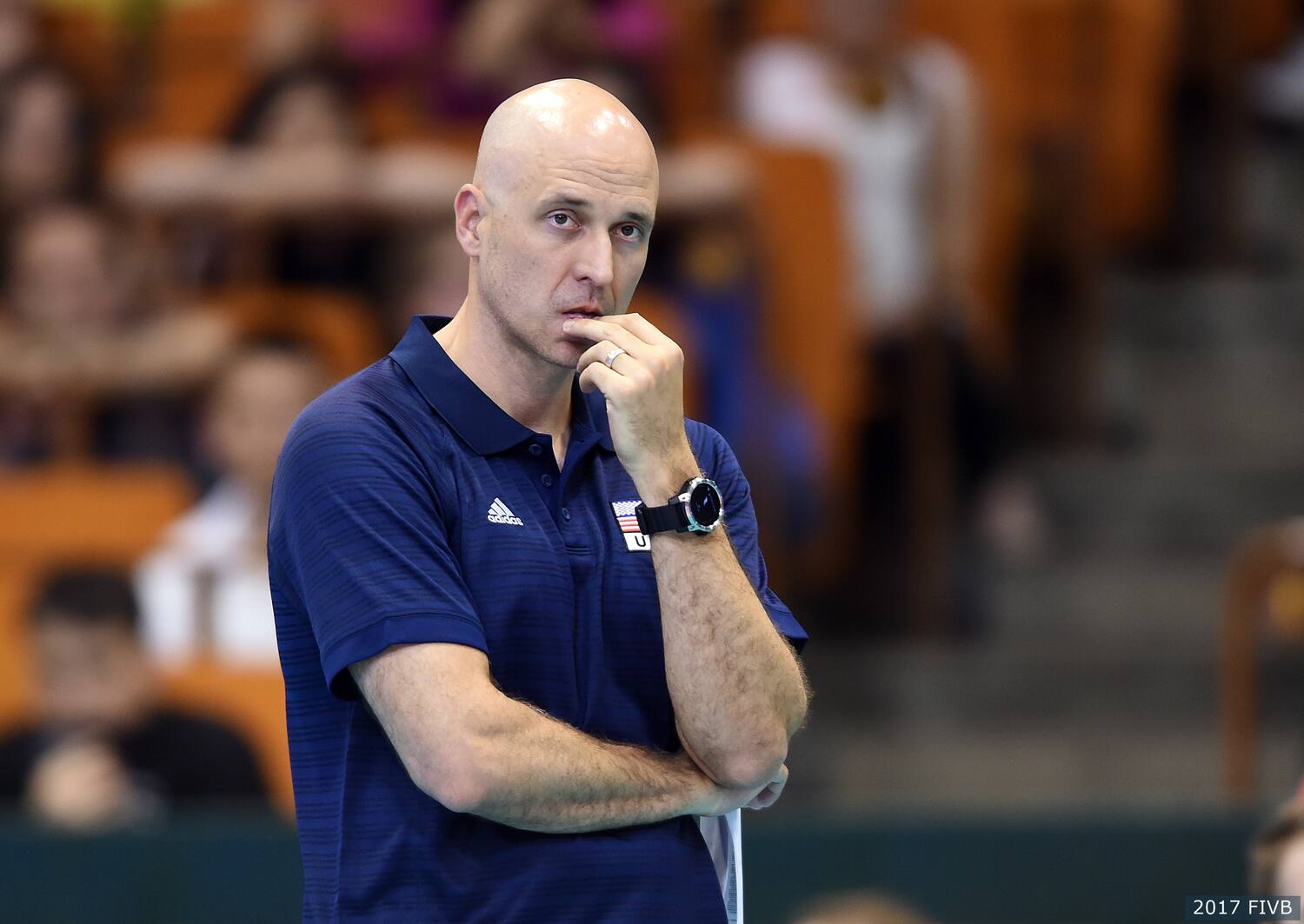
The word itself – accountability – isn’t really the problem. The problem is the way it’s heard. Coaches will say, “I want you to hold your teammates accountable,” and players will interpret it as, “Let your teammates know when they make a mistake.” And that’s a great way to create a culture of blame.
I’m not here to tell you that accountability has no place in a volleyball gym. It clearly does. But in my view, it has to be defined properly and applied the right way. Your role with other players should focus on how you can support them in ways that help them get better. Yelling, blaming or criticizing doesn’t do that.
I’ve observed “high-accountability gyms” many times, and mostly what I see is a higher level of conflict. If a player is dogging it, doesn’t dive for a ball, isn’t working hard in the weight room, you want someone on your team to say, “Hey, we’ve got to work a little bit harder here.” But that type of player-to-player communication shouldn’t escalate to players yelling at one another, and players definitely shouldn’t admonish each other for missed passes or hitting errors. That doesn’t make anyone better.
One reason we still have issues with this misguided form of accountability is that vocal rants used to be standard among players at the highest level. A great example is the U.S. Men’s National Team of the 1980s, which dominated the world, winning two Olympic gold medals (1984 and 1988) as well as the 1985 FIVB World Cup and the 1986 FIVB World Championship. Practices in that gym were filled with heated exchanges.
For years, that volatile environment was the norm. In the 1990s and 2000s, it may have softened a bit, but it still lingered, and the reason it lingered is because young players on a team often learn from veteran players, then become veterans themselves and do the same thing that was done to them.
As coaches and players in the 21st century, I think we all need to get away from doing what we do because it was done to us. We have to be smarter than that.
When you talk to Karch Kiraly, who played on those teams in the 1980s, he’ll tell you that even though the loud gym culture worked for him and his teammates, it’s not what he’s looking for today as head coach of the U.S. Women’s National Team.
Specifically, he says that “we’re not here to blame each other,” and he will point out that there are many productive ways to raise the standard of play without screaming and yelling. One that he embraces is the one-on-one conversation where a teammate lets another teammate know how valuable he or she is to the program, then discusses – quietly – things that need to be worked on and improved.
In no way should this philosophy shift be confused with a lowering of performance standards. As Karch puts it, “We can’t just be fine with a lack of execution, and we certainly can’t be fine with a lack of effort. But we’re all in it together. Every-body brings something of value to the program, and the program needs what each player brings. We all have to help each other find ways to bring out the best versions of ourselves.”
For years, we’ve heard that you can yell and scream at men or boys but not at women or girls. But whatever differences there are between the way men and women respond to being yelled at, I’m a firm believer that it’s not the right approach for either gender. Yes, you might be able to get away with it more with men, but if you’re looking for peak performance, you should treat them the same as the women. And that doesn’t make them soft. It doesn’t make them weaker. It helps make the gym culture more positive and more inclusive.
Another reason that I’m wary of the term accountability is that it often puts the bulk of the leadership into the hands of the players who are least suited to lead. Most players on a team – maybe asmany as 90 percent of the roster – are respectful and tend to treat their teammates and coaches well. But the other 10 percent may have issues. And when they hear the coach say, “Hold each other ac-countable,” they willingly jump into blame, criticism and conflicts. So now the leadership has been shifted to the most dysfunctional members of the team. I’ve seen it happen over and over. And coaches watch it happen – see all the internal conflict – and then give the very same accountability speech at the beginning of the next season.
It’s time we all pause and reflect on how we can most effectively motivate players. Athletes respond to each other better when there’s a foundation of mutual respect.
So here’s my call to action to all coaches and players. Instead of talking about accountability, find an alternate strategy. If a player misses a pass, how about just encouraging the other players to say something like: “I know you’ve got the next one. I’ve seen you do it in practice.”
Here’s one more suggestion: read “The Boys in the Boat.” It’s the story of the eight-member crew team that represented the U.S. in the 1936 Berlin Olympics, and it’s one of my all-time favorite books. I make it required reading for all members of the Men’s National Team. It offers some great insights into how camaraderie can be built within a team through an I’ve-got-your-back mentality.
And that’s what we all want. We want to be on a team where I’ve got your back, you’ve got mine and everybody has each other’s.
